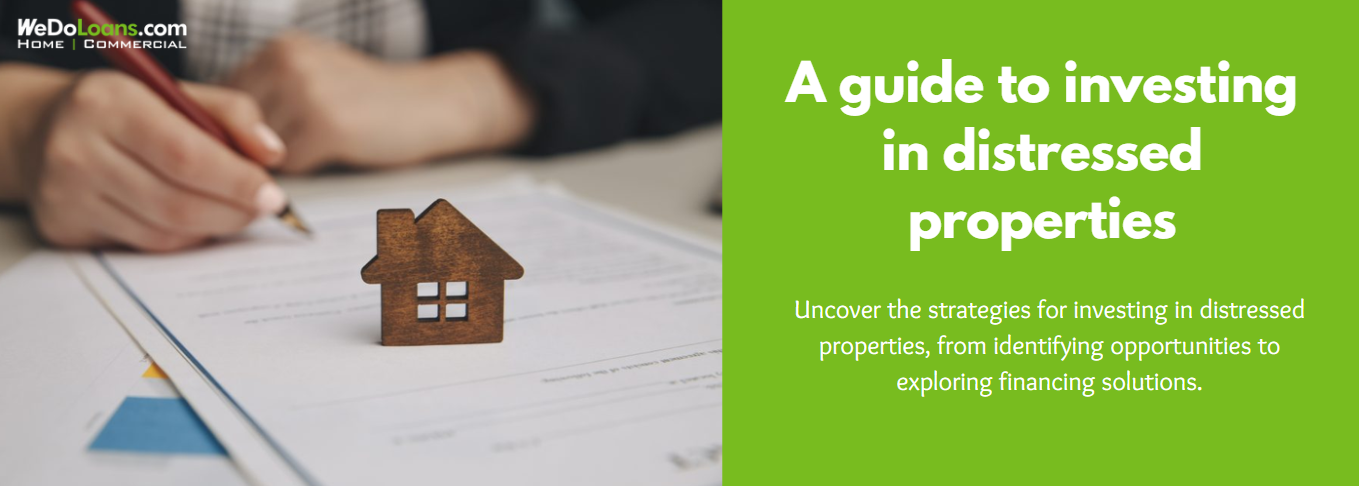
Commercial real estate offers numerous opportunities, and distressed properties often provide some of the highest potential returns. Investors who can identify and purchase these properties wisely can reap significant financial gains.
If you’re new to this area of commercial real estate, this guide will introduce you to the essentials of investing in distressed commercial properties.
What Are Distressed Properties?
A distressed property typically refers to one facing foreclosure because the owner is unable to meet financial obligations, such as mortgage payments. In some cases, the property may already be under the bank’s control following foreclosure.
More broadly, distressed properties may also include buildings in need of significant repairs or renovations, which makes them less appealing to most buyers. However, the property’s financial situation—more than its physical condition—defines it as distressed.
Four Categories of Distressed Properties
Investors generally focus on four main types of distressed properties: foreclosures, short sales, real estate-owned (REO) properties, and auctioned properties.
- Foreclosure Properties
Foreclosure is the legal process by which a lender attempts to recover the unpaid balance of a loan by seizing the property, which serves as collateral. By the time a property reaches foreclosure, the owner is typically far behind on mortgage payments. Investors may acquire foreclosed properties at a discount since lenders are motivated to sell them quickly.
- Short Sales
A short sale occurs before foreclosure, where the property is still owned by the seller but at risk of being seized. The property is sold with the lender’s approval, usually for less than its market value. Short sales can present valuable opportunities for investors to acquire distressed properties early in the process.
- Real Estate Owned (REO) Properties
REO properties are owned by the bank after a failed foreclosure auction. Lenders are often eager to sell these properties quickly, which may result in attractive deals for investors.
- Auctioned Properties
Properties sold at auction may include foreclosures, REOs, or those with overdue taxes. Auctions can offer properties at below-market prices, although many have minimum reserve prices to ensure fair market value.
Advantages and Disadvantages of Investing in Distressed Properties
Like all commercial real estate investments, purchasing distressed properties has its pros and cons.
Advantages:
- Highly motivated sellers
- Below-market prices, offering potential for rapid appreciation
- Lower purchase costs for investors with limited capital
- Potential tax benefits, depending on local laws
Disadvantages:
- Complex and time-consuming acquisition processes
- Additional costs like legal fees and taxes
- Properties may be in poor condition
- Limited information may be available prior to purchase
How to Find Distressed Commercial Properties: 5 Strategies
For investors seeking distressed properties, these tips can improve the chances of success:
- Connect with local real estate agents
- Check foreclosure listings
- Monitor newspaper listings for legal notices
- Network with other real estate investors
- Utilize online real estate platforms for property searches
Financing Options for Distressed Properties
Securing financing for distressed properties can be more challenging due to their condition. However, since these properties are often priced below market value, the required financing is usually less than that for non-distressed properties. Investors should explore all financing options to find the best solution for their purchase.
Distressed Property Investment: Best Practices
- Conduct thorough due diligence to minimize risks.
- Be proactive in your search for properties, as opportunities may be limited.
- Avoid rushing into a deal without fully understanding the costs and risks involved.
When Is the Best Time to Buy a Distressed Property?
The best time to invest in a distressed commercial property is when one becomes available. Economic cycles may influence availability, but distressed properties can emerge at any time due to financial hardships.
Conclusion
Investing in distressed commercial properties can be highly profitable for those willing to manage the associated risks and challenges. By learning the ins and outs of this niche, you can position yourself for success in the commercial real estate market.
